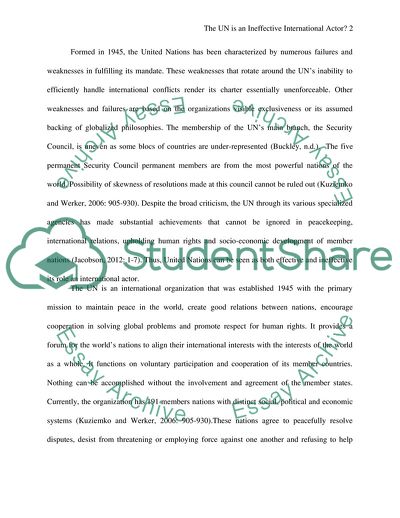Cite this document
(The UN Is an Ineffective International Actor Coursework Example | Topics and Well Written Essays - 2750 words, n.d.)
The UN Is an Ineffective International Actor Coursework Example | Topics and Well Written Essays - 2750 words. https://studentshare.org/social-science/1854090-the-un-is-an-ineffective-international-actor
The UN Is an Ineffective International Actor Coursework Example | Topics and Well Written Essays - 2750 words. https://studentshare.org/social-science/1854090-the-un-is-an-ineffective-international-actor
(The UN Is an Ineffective International Actor Coursework Example | Topics and Well Written Essays - 2750 Words)
The UN Is an Ineffective International Actor Coursework Example | Topics and Well Written Essays - 2750 Words. https://studentshare.org/social-science/1854090-the-un-is-an-ineffective-international-actor.
The UN Is an Ineffective International Actor Coursework Example | Topics and Well Written Essays - 2750 Words. https://studentshare.org/social-science/1854090-the-un-is-an-ineffective-international-actor.
“The UN Is an Ineffective International Actor Coursework Example | Topics and Well Written Essays - 2750 Words”. https://studentshare.org/social-science/1854090-the-un-is-an-ineffective-international-actor.


